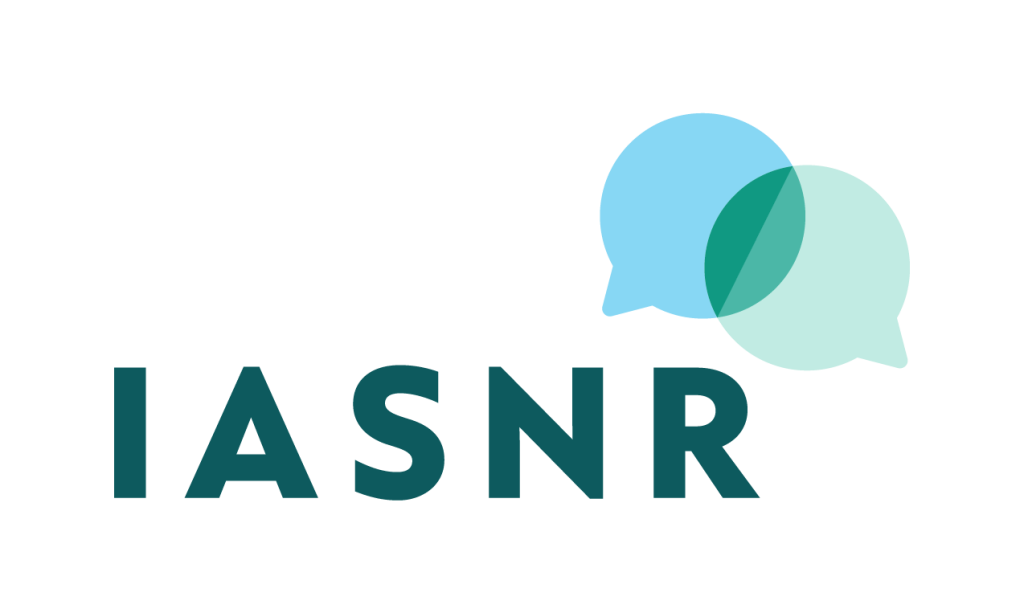Rabel J. Burdge & Donald R. Field Outstanding Article Award – SNR Journal
Society & Natural Resources organizes a committee to review nominations and select a winner for the Rabel J. Burdge and Donald R. Field Outstanding Article Award, for best general research article published in each volume of the journal. The award recipient receives a US $500 cash prize,* sponsored by the journal’s publisher, Taylor & Francis, and is recognized at the IASNR Conference (formerly ISSRM) in June each year; and through the journal and related websites.
Past Paper Award Recipients:
SNR Volume 36 (2023)

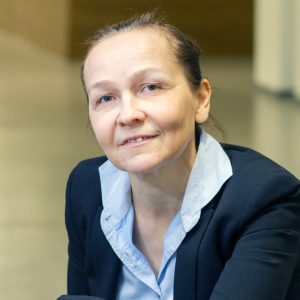
Sanna Komi & Anja Nygren. 2023. “Bad Wolves? Political Ecology of Responsibility and More-Than-Human Perspectives in Human–Wildlife Interactions.” Society & Natural Resources 36(10), pages 1238-1256.
Abstract: Given the widespread failure of anthropocentric approaches to wildlife conservation, questions of conviviality have become increasingly important for conservation efforts. We propose that political-ecological conceptualizations of other-than-human perspectives offer promising avenues for fostering more just and sustainable human-wildlife interactions. To explore these issues, we investigate wolf conservation in northeastern Finland, focusing on the contested coexistence of humans and wolves. Our study draws on data obtained through interviews and participant observation with local residents, interviews with wolf behavior researchers, and analysis of policy documents. Our findings highlight the fundamental roles of power and responsibility in human-wildlife coexistence, as well as the importance of attending to wolves’ intrinsic patterns of behavior. We argue for the value of distinguishing between human agency and other-than-human actions, as attributing intentional agency to wolves can obscure important aspects of human responsibility, political decision-making, and power dynamics at the intersections of humans and other-than-humans.
Paper Award Committee Members: Editor-in-Chief, Kristin Floress and SNR Editorial Board members Jane Addison (James Cook University, Townsville, Australia), Louise Eriksson (Umeå University, Umeå, Sweden), Thembela Kepe (University of Toronto, Toronto, Canada), and Chris Sneddon (Dartmouth College, Hanover, NH, USA).
SNR Volume 35 (2022)







Kathleen Murphy, Kathryn Stone, Emma Stirling Cameron, Lola Strand, Chaise Combs, Anam Khan & Michael Ungar. 2022. “Steeped in Oil”: The Socio-Psychological Factors and Processes That Influence Community Members’ Attitudes toward Economic Diversification in an Oil and Gas-Producing Community.” Society & Natural Resources 35(9), pages 936-954.
Abstract: Oil and gas-producing communities are threatened by a precarious oil market and global commitments to transition to a greener economy. Economic diversification has been proposed as a potential strategy for supporting the resilience of these communities amidst such challenges. We sought to explore community members’ attitudes toward the future of their small oil and gas-producing Canadian community to understand the socio-psychological factors and processes that influence their support for economic diversification and those which reinforce path dependency. This qualitative study involved interviews with 37 adults in the community, and a subset of 16 of those participants engaged in transect walks to further explore emerging themes. While the recent prolonged economic downturn prompted some participants’ willingness to diversify, the deeply ingrained culture and identity as an oil and gas town, the ‘golden handcuffs’ of the industry, and optimism for another boom, acted to reinforce path dependency.
Paper Award Committee Members: Editor-in-Chief, Kristin Floress and SNR Editorial Board members Caroline Gottschalk Druschke (University of Wisconsin-Madison, USA), Kofi Akamani (Southern Illinois University), and Chris Zajchowski (University of Idaho, USA).
SNR Volume 34 (2021)
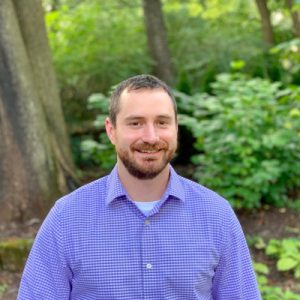

Abstract: In Pennsylvania’s Marcellus Shale region, the recent shale gas boom profoundly reshaped communities, local institutions, and living circumstances for many residents. We focus on one particular local institution – the public school – to investigate the relationship between unconventional gas development and education funding. Using geographic information systems software, we identify unconventional drilling activity between 2007 and 2015 and link unconventional drilling point data with district-level state and federal data. We then use techniques from the matching literature to explore the relationship between unconventional drilling and the distribution of educational resources and opportunities. Evidence from our analysis suggests that, on average, districts experiencing unconventional drilling had lower per pupil revenues, locally-raised per pupil funding for schools, per pupil income, and per pupil property wealth than very similar districts that did not experience unconventional drilling.
Paper Award Committee Members: Editor-in-Chief, Kristin Floress and SNR Editorial Board members Jesse Caputo (University of Massachusetts, USA), Chieh-Lu Li (National Dong Hwa University, Taiwan), Everisto Mapedza (International Water Management Institute, Sri Lanka), Thomas Thaler (University of Natural Resources and Life Sciences, Austria), and Aaron Thompson (Purdue University, USA).
SNR Volume 33 (2020)
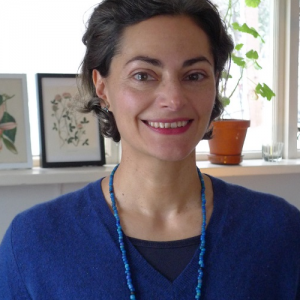

Abstract: Indigenous and Local Ecological Knowledge (ILEK) has been recognized for its potential and contribution to sustainable use of natural resources. It has proven difficult, however, to investigate and observe its tacit and embodied character. The objective of this article is to explore ways in which we can theoretically and methodologically understand ILEK. It does so by theorizing ILEK as craftsmanship using literature on practice theory, and analyzing the tacit and embodied nature of craftsmanship of a Sámi craftswoman and an archipelago fisherman through the use of visual methods. Results of this study are used to analyze and discuss how craftsmanship reproduces ILEK and its potential to contribute to environmental sustainability.
Paper Award Committee Members: Former SNR Editor-in-Chief, Linda S. Prokopy (Purdue University) and SNR Editorial Board members Cynthia Caron (Clark University, USA), Trevor Hill (University of KwaZulu-Natal, South Africa), and H.M. Tuihedur Rahman (McGill University, Canada).
SNR Volume 32 (2019)
For the second time we had a tie and awarded both papers.
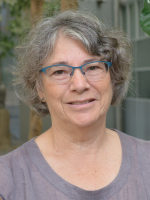

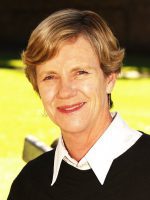

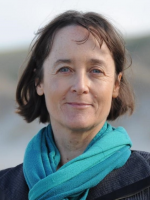
Abstract: Neoliberalism is frequently blamed for challenges in achieving sustainable development; consequently some also question if sustainability is still a useful concept. Neoliberal influence on natural resource management has evolved over the last 30 years to a hybrid form that seeks to compensate for its negative social and environmental externalities. Through review of literature and critical analysis of three case studies of resource development in Australia and New Zealand, we argue that, in spite of modifications under hybrid approaches, neoliberalism still tests achievement of sustainability goals, due to privileging industry and shifting risk and costs to future generations, through inadequate regulation, neglect of public consultation, lack of transparency, and weak impact assessment. We suggest that while neoliberal approaches bring both benefits and disadvantages, sustainability principles must continue to be kept at the forefront of legislation, regulation and management.


Abstract: Multiple studies have examined ‘what’ people think about fuel management (perceptions); fewer have examined ‘how’ people think about it (structure of thoughts). In an Australian study, we used Integrative Complexity Theory (ICT) to explore the relationship between how complexly people thought about, and how acceptable they found, three fuel management strategies: prescribed burning, mechanical thinning and livestock grazing. Integrative complexity (IC) was associated with the direction of acceptability of the most familiar practice – prescribed burning, but trust in organizations was associated with acceptability of all strategies. IC was associated with the extremity of acceptability, with higher IC associated with more moderate attitudes. Our findings support the argument that targeting communication to (i) match current IC and (ii) encourage growth in complexity of thinking has potential to encourage more moderate and stable attitudes about fuel management.
Paper Award Committee Members: SNR Editors-in-Chief Tasos Hovardas (University of Cyprus, Cyprus) and Linda S. Prokopy (Purdue University, USA) and Editorial Board members Peter Edwards (Manaaki Whenua – Landcare Research, New Zealand), Klara Fischer (Swedish University of Agricultural Sciences, Sweden), Thomas Thaler (University of Natural Resources and Life Sciences, Austria), Trevor Hill (University of KwaZulu-Natal, South Africa), and Chris Wynveen (Baylor University, USA).
SNR Volume 31 (2018)
For the first time we had a tie and awarded both papers with this honorable distinction.


Abstract: Successful natural resource management increasingly requires collaboration across boundaries and between diverse stakeholder groups, and trust is a key ingredient of successful collaboration. This study represents an early qualitative empirical attempt to understand how different forms of trust develop, function, and interact in collaborative natural resource management initiatives. We conducted case studies of four landscape-level initiatives in the Collaborative Forest Landscape Restoration Program (CFLRP). Our results suggest that three forms of trust, affinitive, rational, and procedural trust, were all important for successful collaboration, but different forms of trust appeared to function more powerfully during convening, recruitment, retention, and ongoing collaboration of stakeholders, with affinitive trust particularly important for convening, and rational and procedural trust gaining importance for recruiting and retention of members. We discuss the implications of the findings in both theoretical and practical terms.



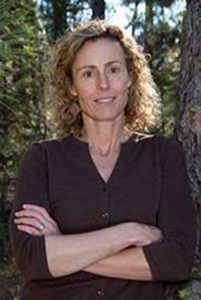
Abstract: Public engagement is important for improving outcomes of social-ecological systems management. We used a social justice theoretical framework to measure residents’ attitudes toward public engagement processes and satisfaction with outcomes of a restoration project in Western Montana. We predicted process control and decision control domains of procedural justice would significantly predict stakeholder satisfaction, with decision control partially mediating the relationship between process control and satisfaction. We tested these predictions using a path analysis of intercept survey data collected from residents within the project area. We found process control had a significant and positive effect on satisfaction but was fully mediated by decision control, suggesting that successful engagement requires opportunities for stakeholders not only to participate but to clearly shape decisions and outcomes. We discuss implications for public engagement, human dimensions research, and social monitoring of social-ecological systems.
One other article published in Society & Natural Resources in Volume 31(4) (2018) was designated as an Award Finalist: “Shaping and Sharing Responsibility: Social Memory and Social Learning in the Australian Rural Bushfire Landscape” by Karen Reid, Ruth Beilin and Jim McLennan (pages 442-456).
Paper Award Committee Members: SNR Editors-in-Chief Tasos Hovardas (University of Cyprus, Cyprus) and Linda S. Prokopy (Purdue University, USA) and Editorial Board members Stuart Carlton (Texas A&M University – Galveston, USA), Rachel Schattman (USDA Forest Service, USA), Darrick Evensen (University of Edinburgh, Scotland), Christopher Wynveen (Baylor University, USA), and Peter Cronkleton (Center for International Forestry Research – Lima, Peru).


Abstract: Culture plays an important role in communities’ abilities to adapt to environmental change and crises. The emerging field of resilience thinking has made several efforts to better integrate social and cultural factors into the systems-level approach to understanding social–ecological resilience. However, attempts to integrate culture into structural models often fail to account for the agentic processes that influence recovery at the individual and community levels, overshadowing the potential for agency and variation in community response. Using empirical data on the 2010 BP oil spill’s impact on a small, natural-resource-dependent community, we propose an alternative approach emphasizing culture’s ability to operate as a resource that contributes to social, or community, resilience. We refer to this more explicit articulation of culture’s role in resilience as cultural resilience. Our findings reveal that not all cultural resources that define resilience in reference to certain disasters provided successful mitigation, adaptation, or recovery from the BP spill.
Another article published in Society & Natural Resources in Volume 30(4) (2017) was designated as an Award Finalist: “Standing Up for Inherent Rights: The Role of Indigenous Led Activism in Protecting Sacred Waters and Ways of Life” by Emma S. Norman.
Paper Award Committee Members: SNR Editors-in-Chief Tasos Hovardas (University of Cyprus, Cyprus) and Linda S. Prokopy (Purdue University, USA) and Editorial Board members Trevor Hill (University of KwaZulu-Natal), and Michiel Köhne (Wageningen University), and Nigel Watson (University of Lancaster).
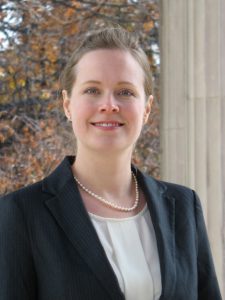
Abstract: Hydrological systems are reflective of the social systems from which they spring. A close examination of the water narratives in a Central Delhi slum reveals that these are imbued with language of developmental struggle and social injustice. This brings clear voice to otherwise tacit, abstract flows ranging from the movement of women, to the circulation of money, and distribution of water, illustrating the delineation and control of the borders and categories over which things flow. In the slum, residents mark the success of their lives, and their measure of the future, by the passing of time in waiting for water. Some residents are believed to live in a state of financial, temporal, and hydrological affluence, while others identify the flows in their lives as stagnant. These abstractions are manifested in stories of daily water struggles, reflecting identities and worldviews that shed light on perceptions of development that are otherwise difficult to express.
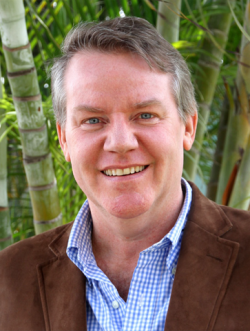
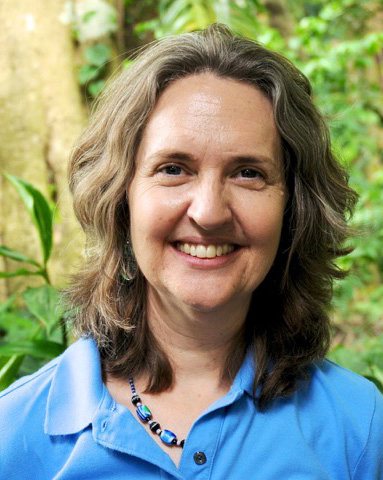
Abstract: This article compares and contrasts communal and individual properties to examine the relationship between state efforts to formalize property rights and tenure security. The article draws on a study of four landscape mosaics in the Peruvian and Ecuadoran Amazon, selected to represent dynamic forest frontiers. Though Hernando de Soto and other theorists from the property rights school emphasize private individual behavior and land allocation in many collective communities, this research also found collective behavior and land allocation in many individualized communities. The importance of the collective and social relations for both types of properties was particularly salient in the sources of tenure security identified. Though title was one important source, this was insufficient, and often formalization was found to be impermanent. Both groups also emphasized social networks and community relations, on the one hand, and demonstrated use, which further establishes the legitimacy of claims with neighbors, on the other.
Three other articles published in Society & Natural Resources in Volume 28 (2015) were designated Award Finalists:
- Lisa Kenney, Joseph Arvai, Mamta Vardhan & Delia Catacutan. 2015. “Bringing Stakeholder Values into Climate Risk Management Programs: Decision Aiding for REDD in Vietnam,” Society & Natural Resources 28(3).
- David M. Lansing. 2015. “Carbon Forestry and Sociospatial Difference: An Examination of Two Carbon Offset Projects among Indigenous Smallholders in Costa Rica,” Society & Natural Resources 28(6).
- Jessica Smith Rolston. 2015. “Turning Protesters into Monitors: Appraising Critical Collaboration in the Mining Industry,” Society & Natural Resources 28(2).
